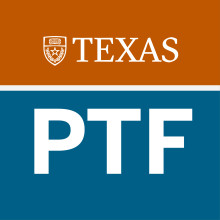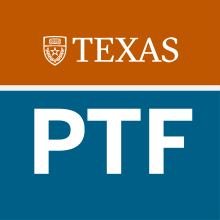
Common Ground: Strategies for Student Achievement in the Post-COVID Era
This initiative addresses the challenge of balancing student accomplishment with the necessary accommodations for student success, particularly in the post-COVID era. The project will collect empirical data from students, faculty, and advisors at the Moody College of Communication to explore how to maintain high academic standards while incorporating essential accommodations for students facing challenges such as mental health issues, food insecurity, and housing instability.

Interprofessional Simulation In Pediatric Medicine
Interprofessional education (IPE) is an essential component of all healthcare training and has a growing role in the UT College of Pharmacy curriculum. Additionally, the use of simulations in IPE can provide students with real-world, real-time scenarios that can help build interpersonal skills and pharmacotherapy knowledge in students.

Characterizing Complexity and Frequency of Feedback Given to Students: What Actually Helps Achieve Learning Outcomes?
This project is aimed at improving learning outcomes in programming courses at UT Austin, specifically targeting ECE312 (Software Design and Implementation I) and ECE360C (Algorithms), but that can potentially be expanded to other programming courses and beyond. The project is designed to enhance students' understanding of fundamental concepts by characterizing the complexity and frequency of feedback provided during completion of assignments.

Does Increasing Course Depth While Reducing Breadth Improve Learning in College Students?
Student-centered learning strategies have been effectively used to increase academic performance and learning in students. Educators have hypothesized that course content reduction can also improve student learning. However, support for this idea is lacking. In the present project, I am planning to assess whether a content reduction strategy increases the academic performance of upper-division stem students at the University of Texas-Austin.

Artful Learning: Integrating Art into Teaching Practice
This project aims to transform academic instruction by integrating art into the classroom. We believe that art can make subjects more engaging and help students connect with the material on a deeper level. By integrating diverse forms of art—such as virtual art, music, film, theater, and more—into the curriculum, we aim to create a more interactive and stimulating learning environment while also supporting students' mental health through therapeutic art sessions.

Implementing Computational Modules into the Materials Science and Engineering Undergraduate and Graduate Curricula
The development of increasingly powerful computational resources has made computational competencies new core forms of literacy that should be formed as part of basic education across all STEM fields.

SafeTeach Collaborative
The SafeTeach Collaborative is a learning community that aims to improve faculty and graduate students' ability to handle classroom safety issues by developing their knowledge, self-efficacy, and instructional strategies. The program utilizes interactive methods including role-play exercises, scenario-based learning, and case study analyses to engage participants in realistic safety situations. The project's design fosters peer support networks, ideally providing participants with ongoing resources for addressing safety concerns.

QR Learning for addressing social and racial injustice
The current proposal envisions developing alternative pedagogical materials for the “Measuring Racial Inequality” course, written in plain language and accessible to students from social sciences/humanities and underserved communities and families.

Compassionate Pedagogy and Experiential Learning
The primary goal of this project is to enhance student engagement and participation in the learning environment, especially those who have may have been marginalized by conventional approaches to teaching. This project aims to support, encourage, and train faculty to incorporate compassionate pedagogy (CP) and experiential learning (EL) into their teaching, with the goal of promoting student connection and faculty creativity.

Disability Justice as Pedagogical Practice
Within social work curriculum, the topic of disability is either explicitly absent or medicalized. The lack of a rich understanding of disability as a cultural experience that intersects with other cultural experiences is concerning given our ethical guidelines of cultural competence and equity. Additionally, not only are students excluded via this omission, but so are faculty, staff, and social workers working in the field. Approximately a quarter of the population identifies as having a disability, yet our curriculum barely acknowledges their experiences.

